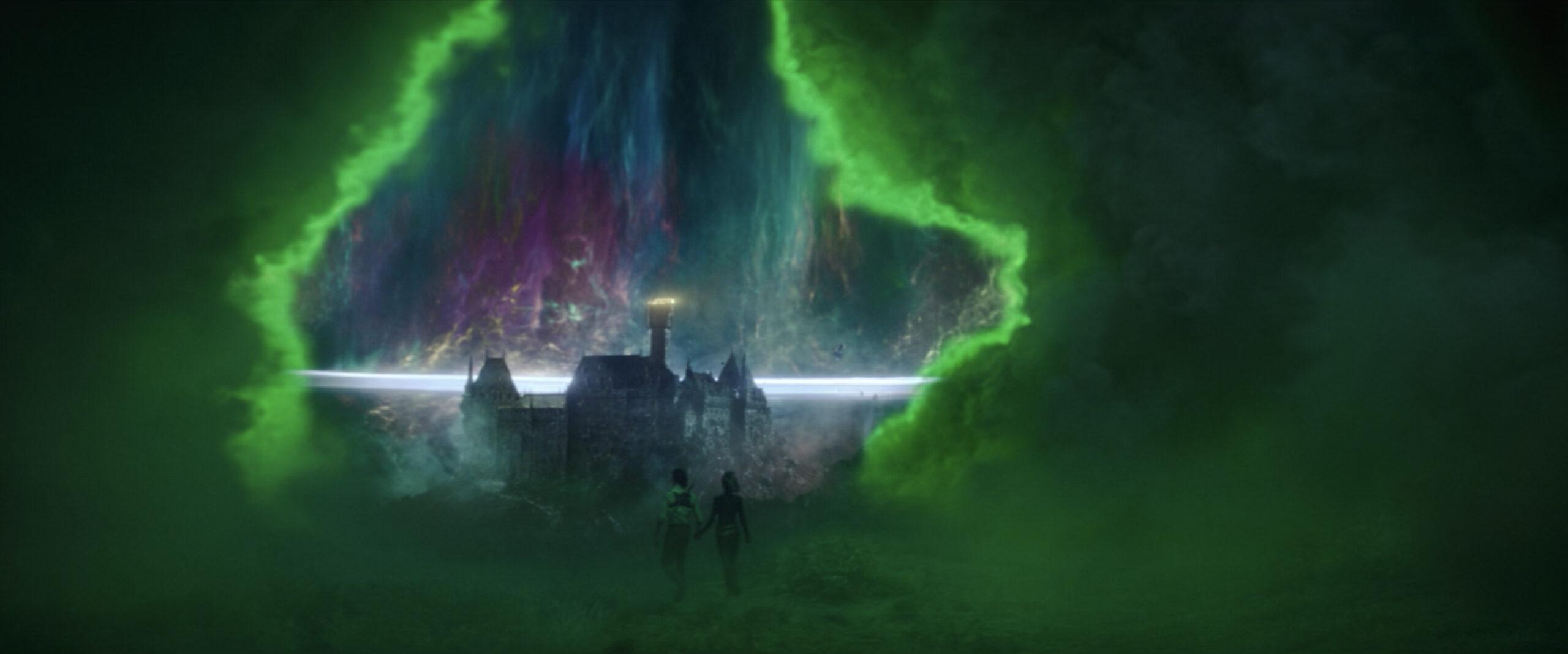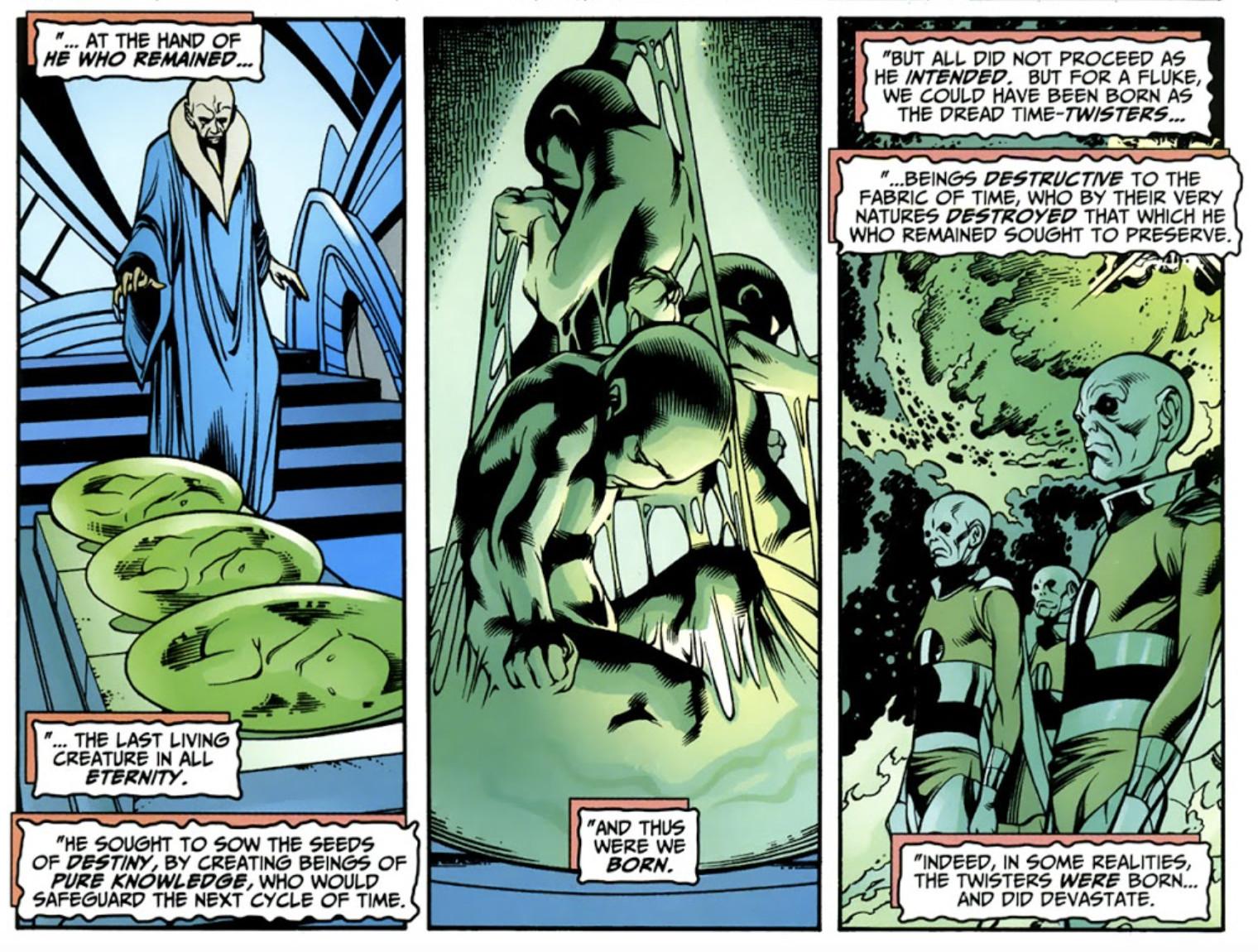Next Wednesday, the God of Mischief’s journey through time will come to an end. Loki has traveled from the destruction of Pompeii in 79 A.D. to the very ends of time itself, and now he and Sylvie will finally meet the man behind the curtain.
Similar to the MCU’s first two Disney+ TV shows, Loki’s future as a series remains uncertain at the time of airing. Since WandaVision concluded in early March, it’s been submitted as a limited series at the Emmys and Elizabeth Olsen has all but confirmed the series has concluded, while there’s still a chance that The Falcon and the Winter Soldier will return for a second season under an updated title. For Tom Hiddleston’s Loki, the beloved Asgardian trickster has already survived several deaths and lived many lives beyond what was initially supposed to be his last turn in Thor: The Dark World. Now thanks to his stand-alone series, Loki has explored greater MCU depths than any character before him, and when the finale drops next week, we’ll find out whether the God of Mischief has one final trick up his sleeve to endure yet again.
Ahead of Loki’s highly anticipated conclusion, let’s take a look at what we can possibly expect at the end of Loki’s journey into mystery.
The Endgame for Loki (the Show)
Loki has been a wild ride, full of the kinds of lies and deceptions that have defined the character since his debut in 2011’s Thor. After being captured by the all-powerful Time Variance Authority in the series premiere, Loki was told that his entire life had been predetermined by a trio of omniscient beings known as the Time-Keepers. As the TVA’s animated mascot Miss Minutes explained, the Time-Keepers, after saving the entire multiverse from destroying itself, “now protect and preserve the proper flow of time for everyone and everything.”
As Loki and Sylvie found out in the fourth episode, though, the Time-Keepers have merely been a front this whole time. Even the faithful employees of the TVA, including the mysterious Ravonna Renslayer, don’t know the truth of their organization’s creation. And if the Time-Keepers are a lie, everything that Miss Minutes explained about the so-called Sacred Timeline is worth questioning. The TVA’s power is undeniable—it’s just a matter of where it comes from, and who really wields it.
Ever since the Time-Keepers were first mentioned in the premiere, there’s been growing speculation among Marvel fans that Loki would eventually introduce the upcoming villain of Ant-Man and the Wasp: Quantumania, Kang the Conqueror. After all, in the comics, Kang is also known as the Master of Time, a time-traveling villain from the future who’s been at odds with the Time-Keepers because of his efforts to conquer the very fabric of time itself. He has close ties to Ravonna—whose origins and motives in Loki are still unknown—as well as Alioth the Usurper, the big purple smoke monster that just made its debut in Loki’s penultimate episode.
As Boastful Loki says in “Journey Into Mystery,” Alioth is “a living tempest that consumes matter and energy.” Sylvie later speculates that Alioth is also “the guard dog protecting the only way” into the domain of whoever created the TVA. In the comics, Alioth is the first entity in the Marvel universe to break free from the constraints of time and, like Kang, dominates realities in a quest to build a temporal empire. (What a massive purple smoke monster would want to do with such power remains a mystery to me, but like Alligator Loki, maybe it’s best not to question these things.) Alioth builds an even larger empire than the Master of Time himself, but Kang creates a barrier that prevents it from entering his own domain: the city of Chronopolis.
While Loki’s Alioth seems confined to the Void, this dividing barrier from the comics could be the very portal that Loki and Sylvie were about to pass through as the episode concluded.

The castle seen here bears little resemblance to Kang’s sprawling city in the comics, however, so there’s no guarantee that he’s the one waiting on the other side.
Unlike Loki’s animatronic smoke screens, the comic book version of the Time-Keepers are real. They bear a strong resemblance to the goofy “space lizards” whom Loki and Sylvie encounter, and they really do wield the power to control the fabric of time. They were created by the final director of the TVA and the last living being in the multiverse, a person known simply as He Who Remains. Here’s how the Time-Keepers in the comics describe this strange, deeply lonely character who lives at the end of time:

If Loki isn’t introducing Kang, it’s possible that this character, in some form, will make an appearance. But who knows—after all the Loki variants our unlikely hero has already met, there’s even a chance that some version of Loki has been pulling the strings since the beginning.
Whoever ends up being revealed as the TVA’s creator—and whatever transpires in the finale—will surely shake up the future of the MCU for years to come. Loki head writer Michael Waldron is also the scribe for Doctor Strange in the Multiverse of Madness, and whether or not Jonathan Majors’s Kang makes his debut in Loki, the time-traveling villain is already confirmed to appear in Quantumania. The premiere teased that timeline-defying Nexus events left unchecked could “branch off into madness, leading to another multiversal war.”
While no war has been waged as of yet, the existence of Loki and Sylvie’s bizarre (and low-key incestuous) romance may be enough to start one. The moment they shared in the face of death on Lamentis-1 in the fourth episode created a Nexus event on a scale that no member at the TVA had witnessed before. “Two variants of the same being, especially you, forming this kind of sick, twisted romantic relationship—that’s pure chaos,” Mobius says to Loki when realizing what caused the event. “That could break reality.”
Whatever happens between the God and Goddess of Mischief in the finale, their actions may be what ends up unraveling the entire multiverse.
The Endgame for Loki (the Character)
Of course, what happens at the end of Loki is less important than what the end of Loki truly means. In a sense, none of the strange, confusing plot mechanics—or even its implications for the future of the MCU—really matters when considering what the series is actually asking: Who is Loki?
Loki has been the rare MCU project that feels like a stand-alone story, and one that has untethered its title character from a past when the Infinity Stones held greater importance than anything else. It has provided the space to bring Loki back from the dead and explore the character without him having to serve as the foil to his heroic brother, Thor. In each episode of the series, there has been at least one character who asks a question along the lines of “what makes a Loki tick?” or who makes some grand, sweeping statement about which traits will forever define the God of Mischief. With Loki being the trickster that he is, the question about his character almost always comes down to trust.
“How do I know that, in the final moments, you won’t betray me?” Sylvie asks Loki before their confrontation with Alioth.
“Listen, Sylvie,” Loki replies. “I betrayed everyone who ever loved me. I betrayed my father, my brother, my home. I know what I did. And I know why I did it. And that’s not who I am anymore.”
Loki has already defied death a few more times since the beginning of the series, and for perhaps for the first time, he’s even shown a capacity for love. (Even if it is, very fittingly, love for himself.) With the nature of all existence at stake heading into the finale, Loki will have the chance to prove once and for all whether one can truly rewrite their story when it matters most.
